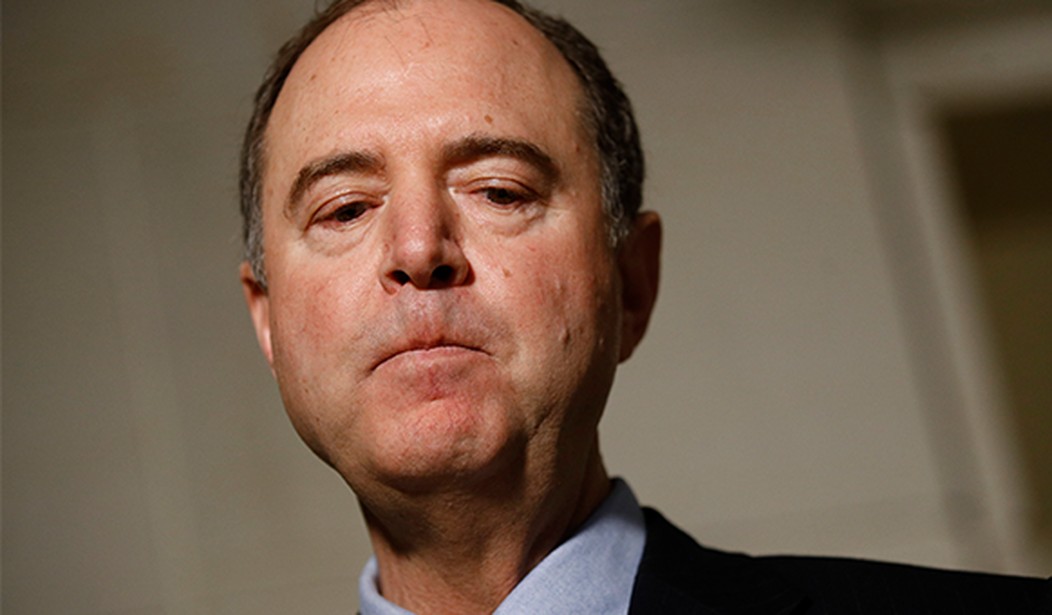Let's address two important pieces of context as a backdrop to the ongoing impeachment hearings in the Democrat-controlled House of Representatives (today's session has been punctuated by a characteristically self-destructive Twitter outburst by the president). First, as Leah covered earlier, new reports suggest that Democratic leaders have decided to shift away from emphasizing "quid pro quo" when discussing the president's wrongdoing, opting instead for "bribery." Why? Because the former wasn't resonating sufficiently with battleground state voters, according to their internal polls:
NUGGET: The Dem decision 2 retire “quid pro quo” & embrace “bribery” followed a DCCC study showing the word resonates more in battlegrounds
— Rachael Bade (@rachaelmbade) November 15, 2019
It’s also clearly stated in the Constitution as grounds 4 removing POTUS. Could we see it in impeachment articles? https://t.co/kXHRcMpAhg
I've seen the legal arguments and counter-arguments starting to emerge on the 'bribery' question, and those should be debated on the merits. But the Post's story indicates that it was political messaging, not the law, that precipitated this change. As I said on Twitter, the Democrats appear to be changing the accusation against the president based on public opinion polling, which looks calculated, inauthentic and cynical. Lefties have been wringing their hands about the "quid pro quo" formulation being too confusing and esoteric for average people to understand, urging Democrats to land on a term that people can understand. Polling has apparently borne this out, so the language is being changed.
This reminds me of the Resistance's seemingly-abrupt abandonment of "collusion" -- a word that had been used endlessly among Democrats and the press -- in the Russia matter, in favor of "conspiracy," a legal term (some conservatives had discussed this distinction for some time, for various reasons). Their rhetorical about-face largely coincided with Special Counsel Robert Mueller's determination that the Trump campaign did not participate in the Kremlin's 2016 election meddling efforts. When president accurately crowed that Mueller's bottom-line finding on this issue amounted to "no collusion," his opponents claimed that term was irrelevant and not applicable, even though it was both relevant and applicable. Certain terms are repeated on loop until Democrats and their media allies decide that they've outlived their usefulness, at which point they are declared inaccurate and replaced.
Recommended
As I indicated above, I'm open to discussions about whether the "quid pro quo" to "bribery" terminology evolution has legal merit. But I also get the sense that if you're trying to remove a duly-elected president from office, his high crimes ought to be so self-evident that a mid-stream rhetorical adjustment wouldn't make much of a difference. It sounds like Democrats recognize that their hearings may not furnish voters with the type of 'bombshell' that could seriously move the needle on impeachment:
In a private meeting this week, House Speaker Nancy Pelosi and her top lieutenants were skeptical about the prospects of a dramatic shift in opinion even as public impeachment hearings began this week, according to multiple sources familiar with the matter. The upshot, the sources said: Democrats need to move forward with impeachment proceedings even if the politics are murky, noting that even during Richard Nixon’s presidency most of the public was divided until soon before he was forced to resign.
Allahpundit has more on the political complications facing Pelosi and company:
What about polls having to do specifically with impeachment? FiveThirtyEight is tracking those. They’ve actually moved slightly towards Trump as the process has advanced. In early October, support for the impeachment inquiry was around 10-11 points greater than opposition to it. Today the margin is between six and seven points. On the more important question of whether Trump should be impeached (or impeached and removed), Americans are in favor but by a narrower spread of just two to three points. That’s barely budged since the start of October; the parade of Democratic witnesses and leaks about their testimony hasn’t changed anything. Moreover, this is what national polling looks like. As we’re periodically reminded, the truly important polling is in the battleground states. And although data there is scant, what we have doesn’t look great for Democrats either. If you prefer less scientific, more Trumpy data, we can do that too. TV ratings for the Bill Taylor/George Kent testimony are in. The audience yesterday was 32 percent smaller than it was for James Comey’s testimony when he appeared before the House after being fired as FBI director.
That latter point speaks to a factor I've been talking about since the Ukraine issue first bubbled to the surface: Investigation fatigue. I openly concede that the facts on the ground are different and very concerning. I've made the case that the president deserves to be censured for his misconduct on this matter. But after years of Russia, Russia, Russia, it appears as though many voters are tuning out of the opposition's latest gambit. Democrats and journalists frustrated by this phenomenon can blame themselves. AP's point about swing state polling is also correct and important. The second bit of new context that merits some attention is this:
Reuters: “Ukraine's Foreign Minister Vadym Prystaiko said on Thursday that U.S. ambassador Gordon Sondland did not explicitly link military aid to Kiev with opening an investigation into former Vice President Joe Biden and his son...” https://t.co/QSLd7B5dKL
— Guy Benson (@guypbenson) November 15, 2019
This isn't conclusive or an exoneration, obviously. Prystaiko could be lying, or he could've been cut out of the loop (powerful evidence remains that the problematic arrangement was very much real). But given the attention paid to witnesses who say they got the impression that there was a probe-for-aid quid pro quo in the offing, countervailing evidence shouldn't simply be waved away because it's inconvenient to The Narrative.

























Join the conversation as a VIP Member